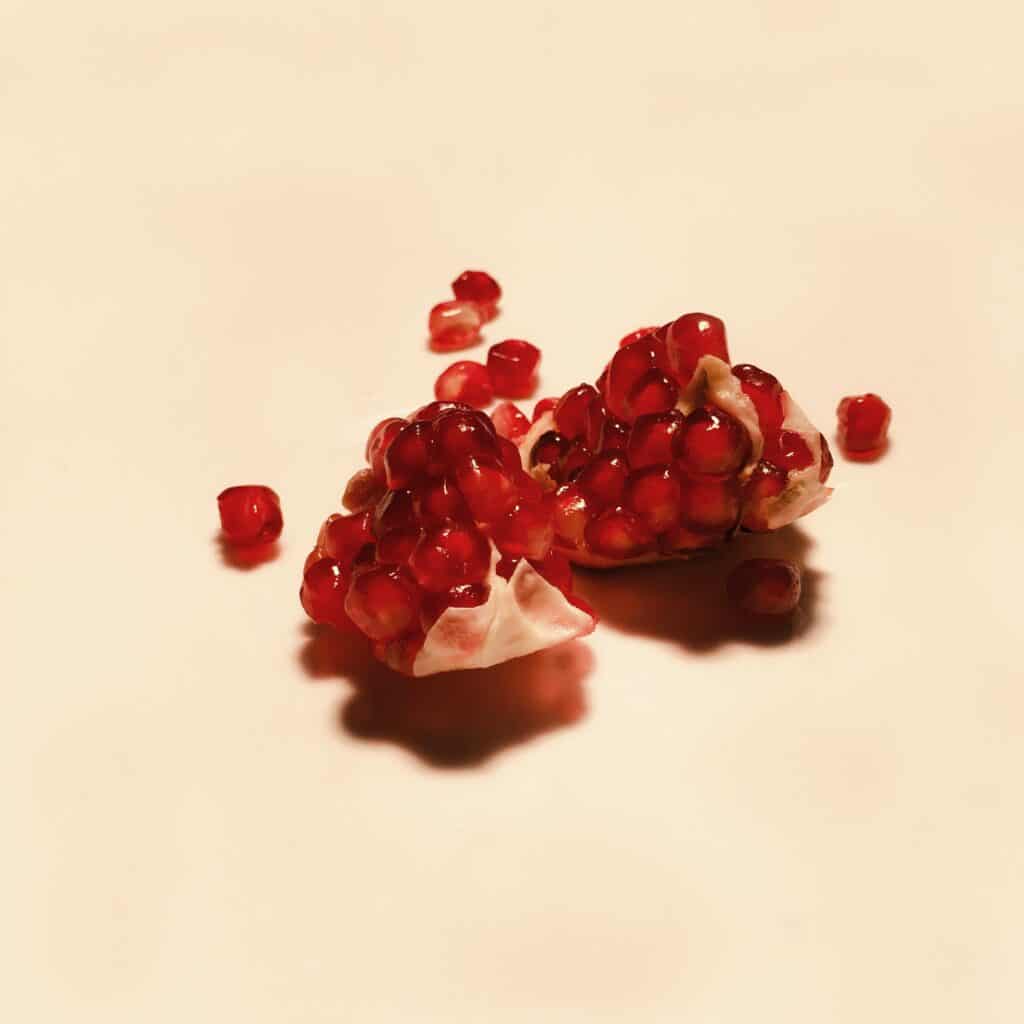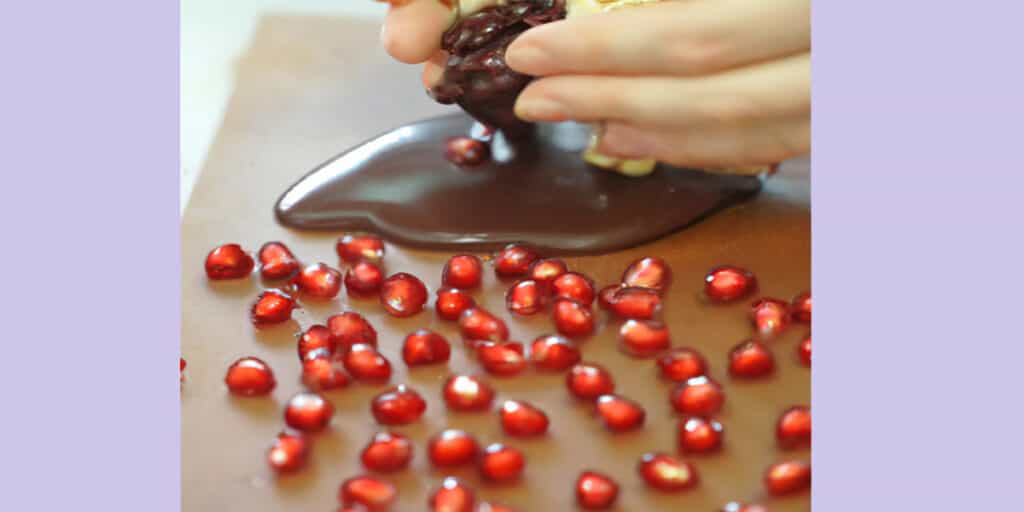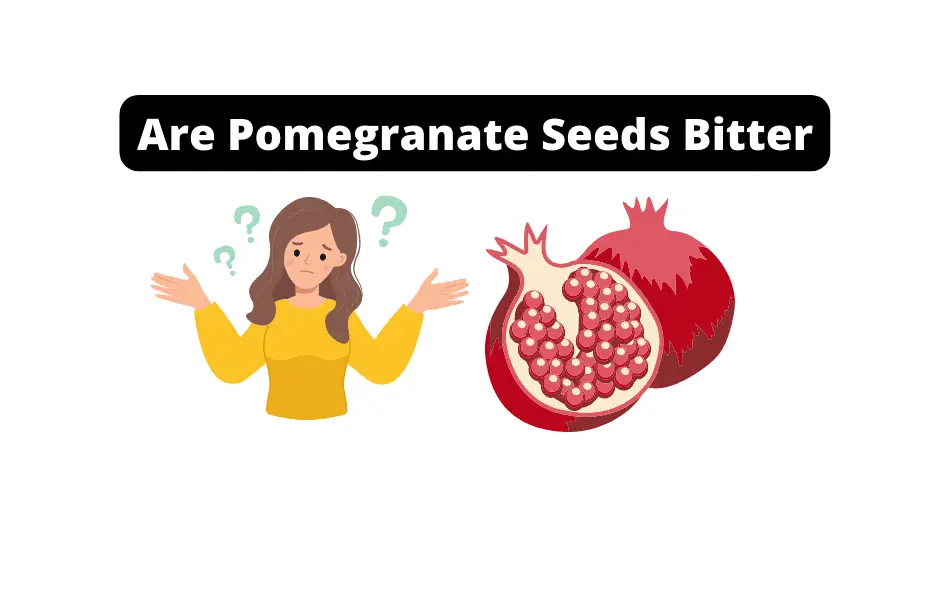Pomegranate seeds are the tasty, edible seeds hidden inside the fruit.
They are small, ruby-red bursts of sweet and tart deliciousness that pack a serious punch of health benefits.
The seeds are surrounded by a sac of sweet-tart juice contained by a thin skin. The seeds cluster around the core in a layer resembling a honeycomb.
The Pomegranate fruit is ripe when it is a deep red and feels a bit heavy for its size.
The seeds come in different sizes, but they are all edible. People primarily eat pomegranate seeds, but the fruit is also used in cooking and juicing.
Pomegranate seeds are safe to eat and are a good source of many vitamins and nutrients. They contain healthy nutrients and antioxidants, and many believe they have anti-inflammatory properties.
Eating fresh pomegranate seeds is a great way to boost your overall health and well-being.
Related Posts:
Taste and Texture of Pomegranate Seeds
Pomegranate seeds are a unique and flavorful addition to any dish. The taste of pomegranate seeds can be described as sweet and tangy, with a slightly tart aftertaste. The seeds themselves are crunchy and provide a satisfying texture to any dish.
When eaten independently, the seeds provide flavor and juice immediately into your mouth.
The sweetness of the seeds is balanced by the tartness, creating a well-rounded taste. The juice from the seeds can be used to make pomegranate juice, a popular drink due to its health benefits and unique taste.

The flavor of pomegranate seeds can vary depending on the variety of pomegranate. Some varieties are sweeter than others, while others carry a more tart flavor. The sweetness of the seeds can also be affected by the ripeness of the fruit. Ripe fruit tends to be sweeter than unripe fruit.
Related Posts:
Incorporating Pomegranate Seeds in Your Diet
If you’re wondering how to incorporate pomegranate seeds into your diet, many options are available. Pomegranate seeds make a great addition to salads, adding a sweet and tangy flavor. You can also enjoy them raw as a snack or garnish on top of desserts.
Pomegranate seeds can be enjoyed raw or processed and are a versatile ingredient in different recipes.
For a healthy and refreshing breakfast, you can add pomegranate seeds to smoothies, yogurt, or oatmeal. They can also make dressings, sauces, and marinades for savory dishes.
One of our favorite ways to eat pomegranate seeds is to make chocolate-covered pomegranate seeds (see the link below).

This delicious treat is easy to make and perfect for satisfying your sweet tooth. Simply melt some chocolate, dip the seeds in, and let them cool. They make a great snack or dessert and are a healthier alternative to candy.
Related Posts:
Extracting and Storing Pomegranate Seeds
Extracting pomegranate seeds can be a messy process, but it’s worth it for the delicious and nutritious payoff. To extract the seeds, cut the fruit in half and gently remove the seeds with a wooden spoon.
Alternatively, you can score the fruit around the circumference and break it open into sections, then remove the seeds. Be careful not to break the seeds, as they can stain your clothes and parts of your hands.
Once you have removed the seeds, you can store them in an airtight container in the refrigerator for up to five days. If you have more seeds than you can eat in five days, you can freeze them later.
To freeze pomegranate seeds, you’ll first need to remove them from the fruit. Then, spread them out in a single, flat layer on a baking sheet or paper towel and freeze until solid. Then, transfer the frozen seeds to a freezer bag or container and store them in the freezer for up to six months.
It’s important to note that pomegranate seeds are surrounded by a bitter, white, pithy part that is technically edible but generally used for juicing or extracting pomegranate extracts.
To remove the pith, place the seeds in a bowl of water and gently rub them with your fingers. The pith will float to the top, and you can remove it them as nessseccary.
When selecting whole pomegranates, look for fruit that is heavy for its size and has no small scratches or blemishes.
The skin should be firm and shiny, and the fruit should be ruby-red in color. Avoid fruit that is soft or has large brown spots, as these are signs of spoilage.
Related Posts:
Health Benefits of Pomegranate Seeds
We all know that pomegranate seeds are delicious, but did you know that they are also packed with nutrients that can benefit your health?
Here are some of the key health benefits of pomegranate seeds:
- Rich in antioxidants: Pomegranate seeds are a great source of antioxidants, which can help protect your cells from damage caused by free radicals. This can help reduce the risk of chronic diseases such as cancer and heart disease.
- High in vitamin C: Pomegranate seeds are also a good source of vitamin C, which is important for maintaining a healthy immune system and promoting skin health.
- May help lower blood pressure: Some studies have suggested that pomegranate seeds may help lower blood pressure, which can reduce the risk of heart disease.
- Rich in potassium: Pomegranate seeds are high in potassium, which is important for regulating blood pressure and maintaining healthy muscles and nerves.
- Contains other beneficial nutrients: Pomegranate seeds also contain other important nutrients such as fiber, vitamin K, and folate.
- May help reduce the risk of heart disease: Some studies have suggested that pomegranate seeds may help reduce the risk of heart disease by improving cholesterol levels and reducing inflammation.
If you want more information on pomegranates, check out our other post in the related posts section below.
Related Posts:

For years now, Moringa has been a daily consumption in my life, incorporated in various forms such as capsules, food recipes, and soothing teas. Initially, my daughter and I embarked on this journey as an experiment, but as time went on, I delved deeper into its remarkable potential and unearthed the unlimited benefits it offers for our well-being and health. I got motivated by how much it positively impacted me and decided to share my insights about Moringa’s profound impact on health and overall living through my blog posts.
